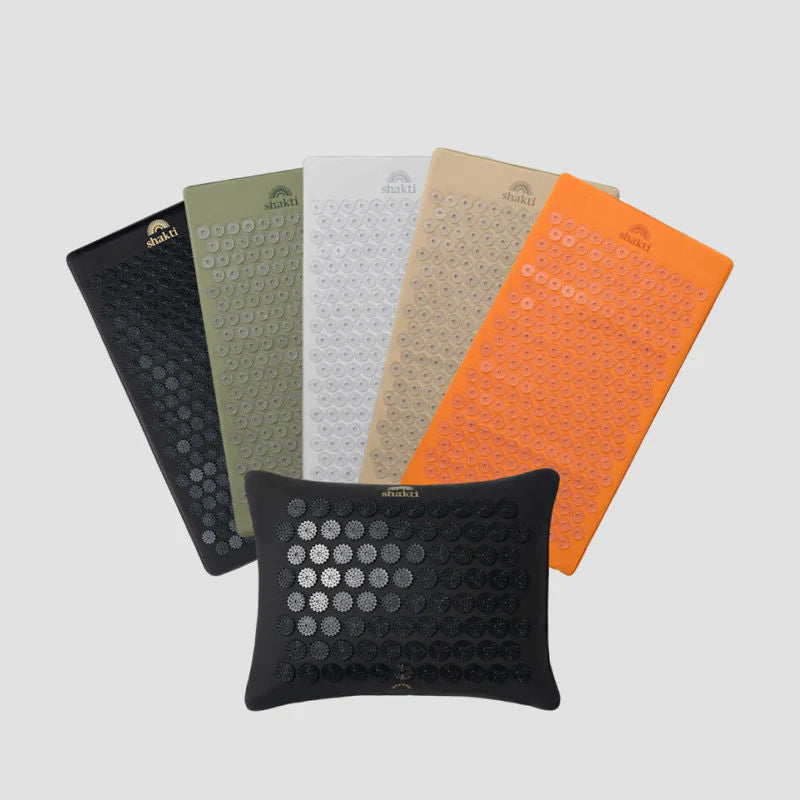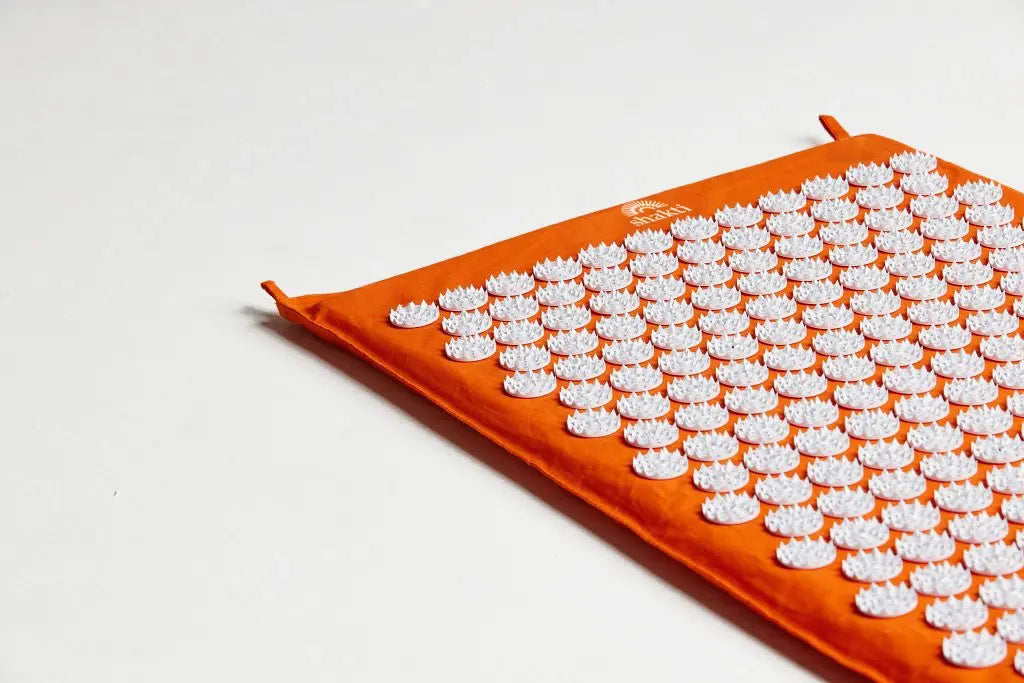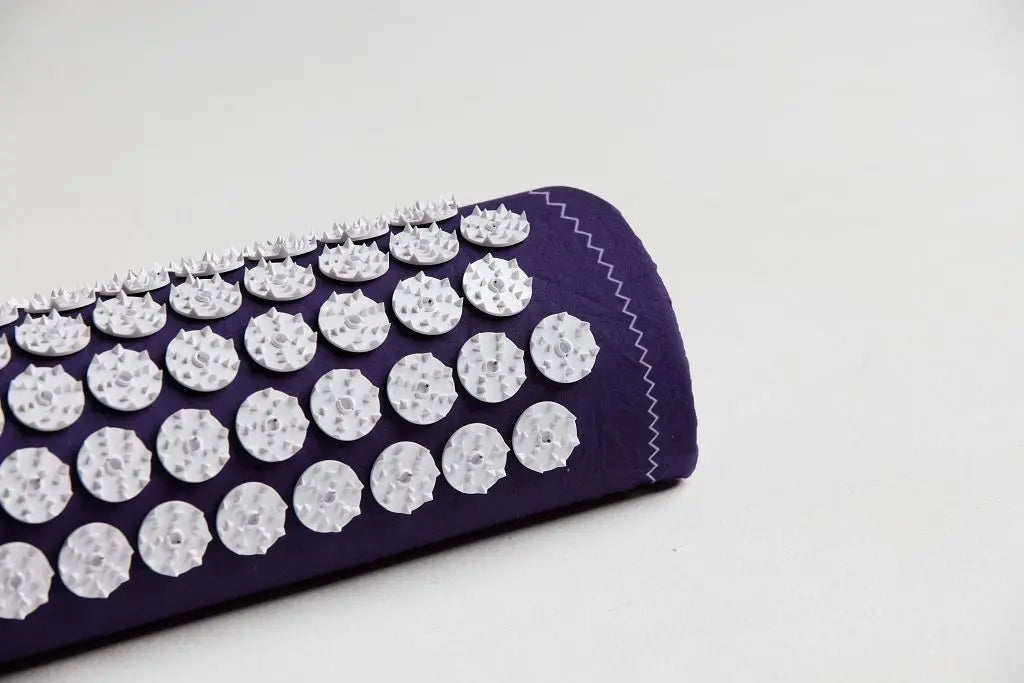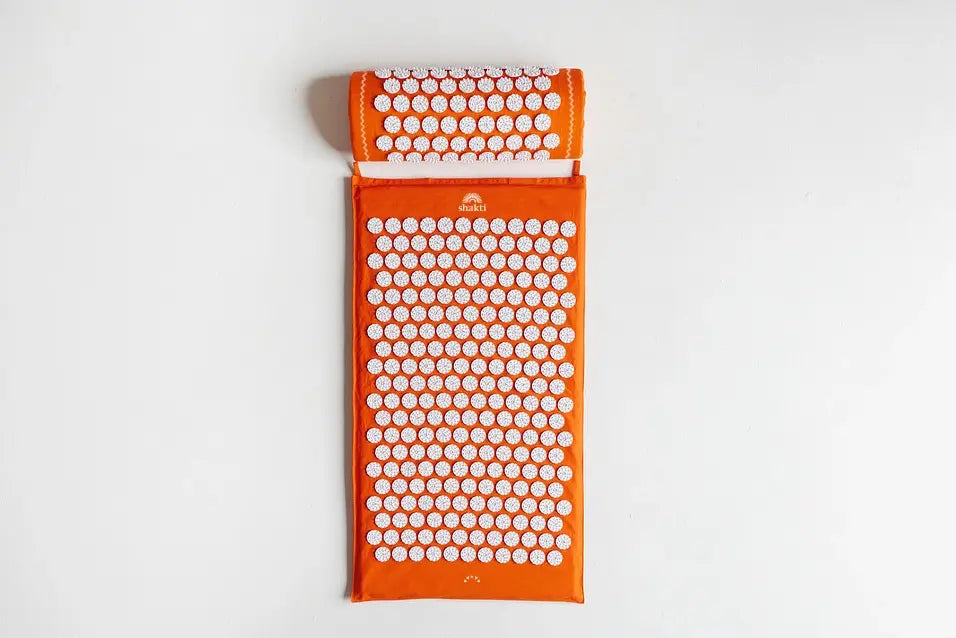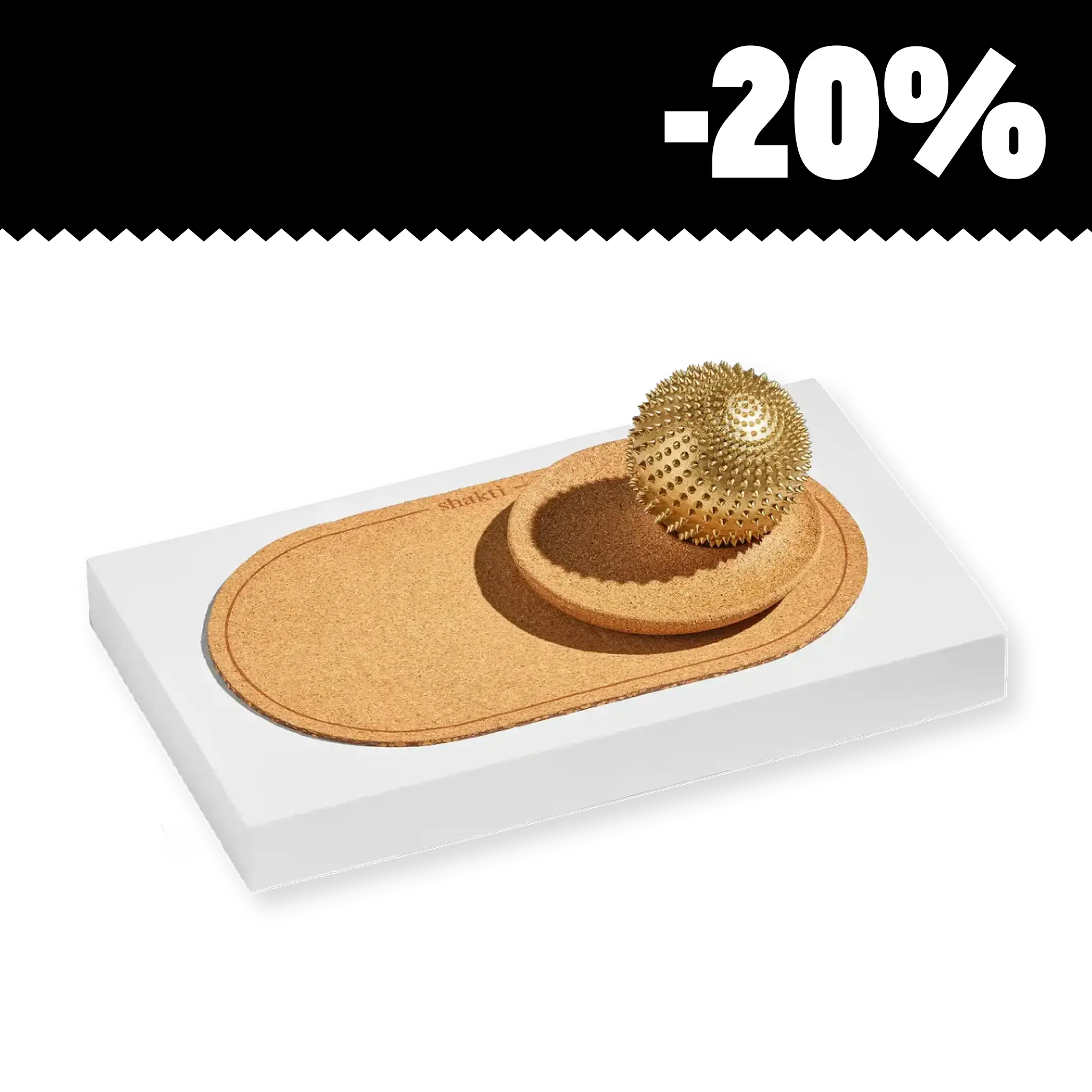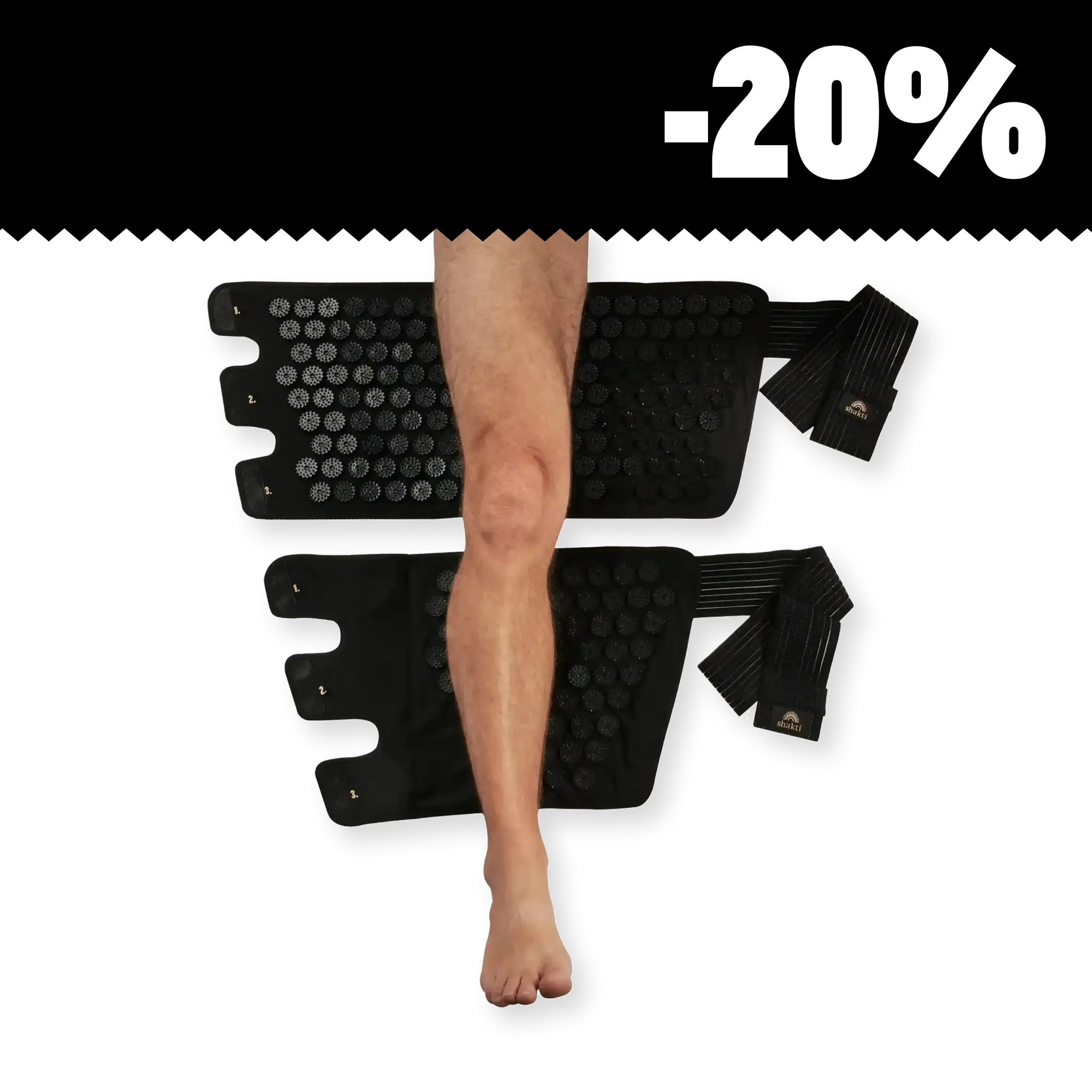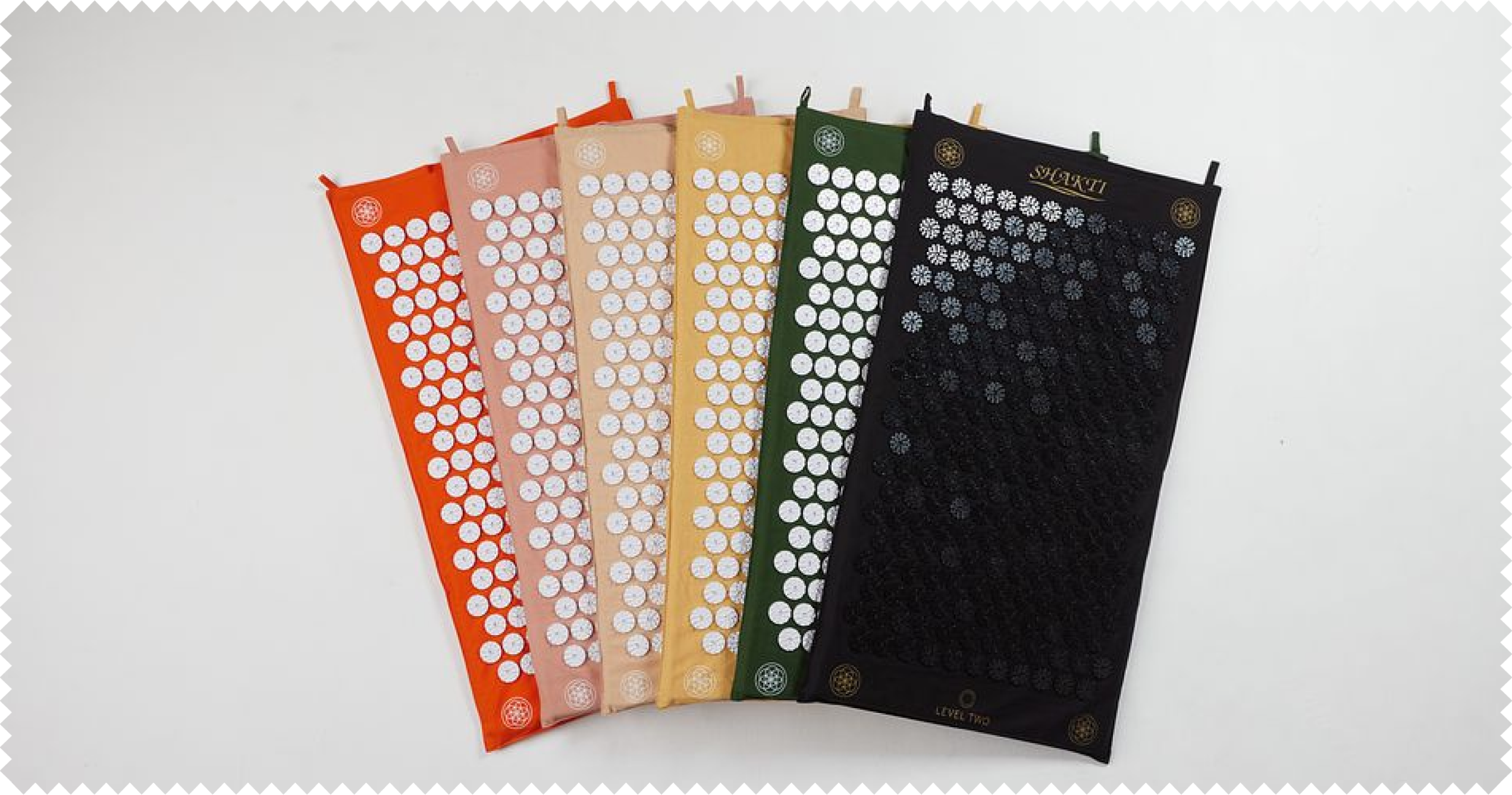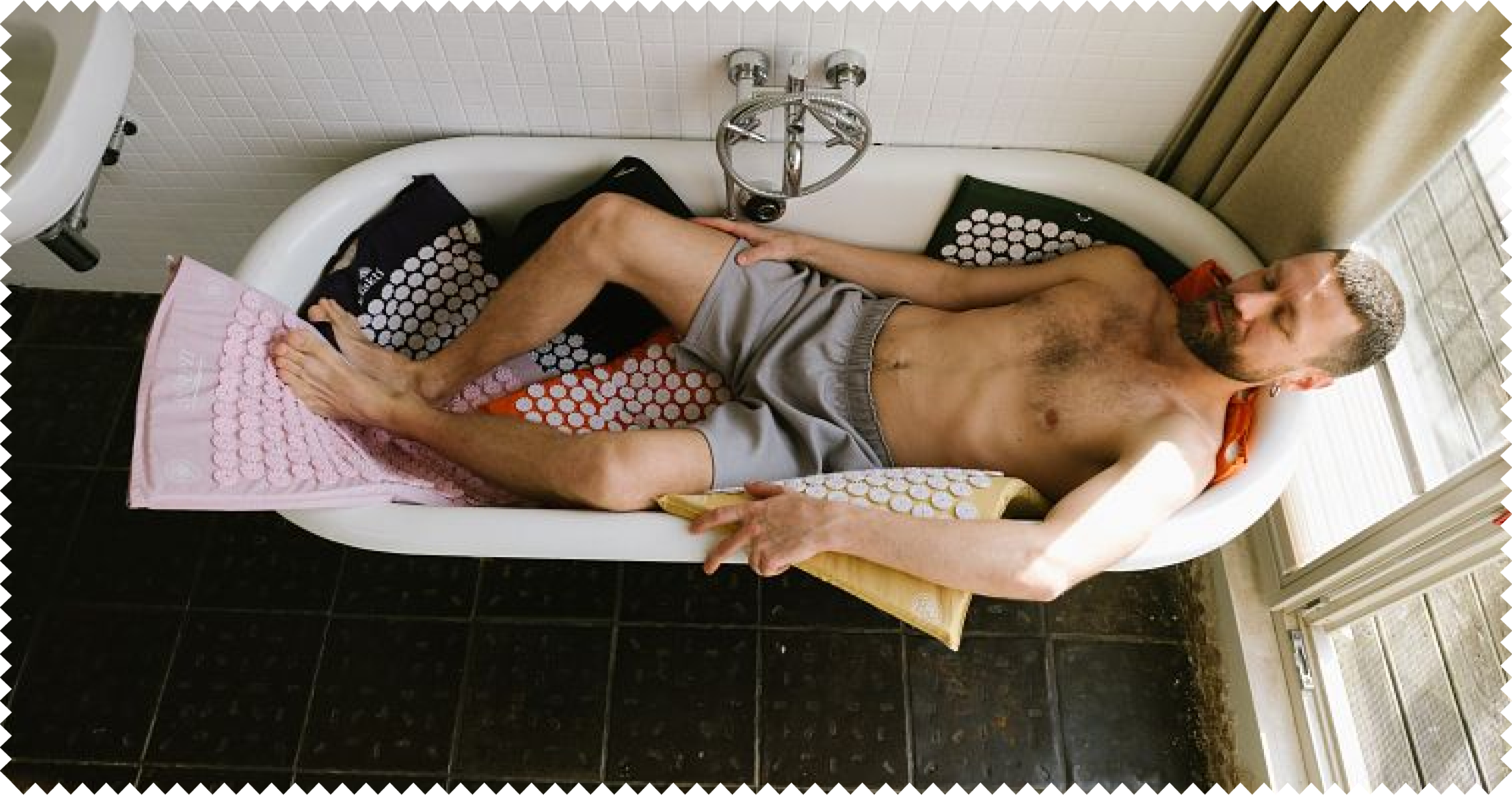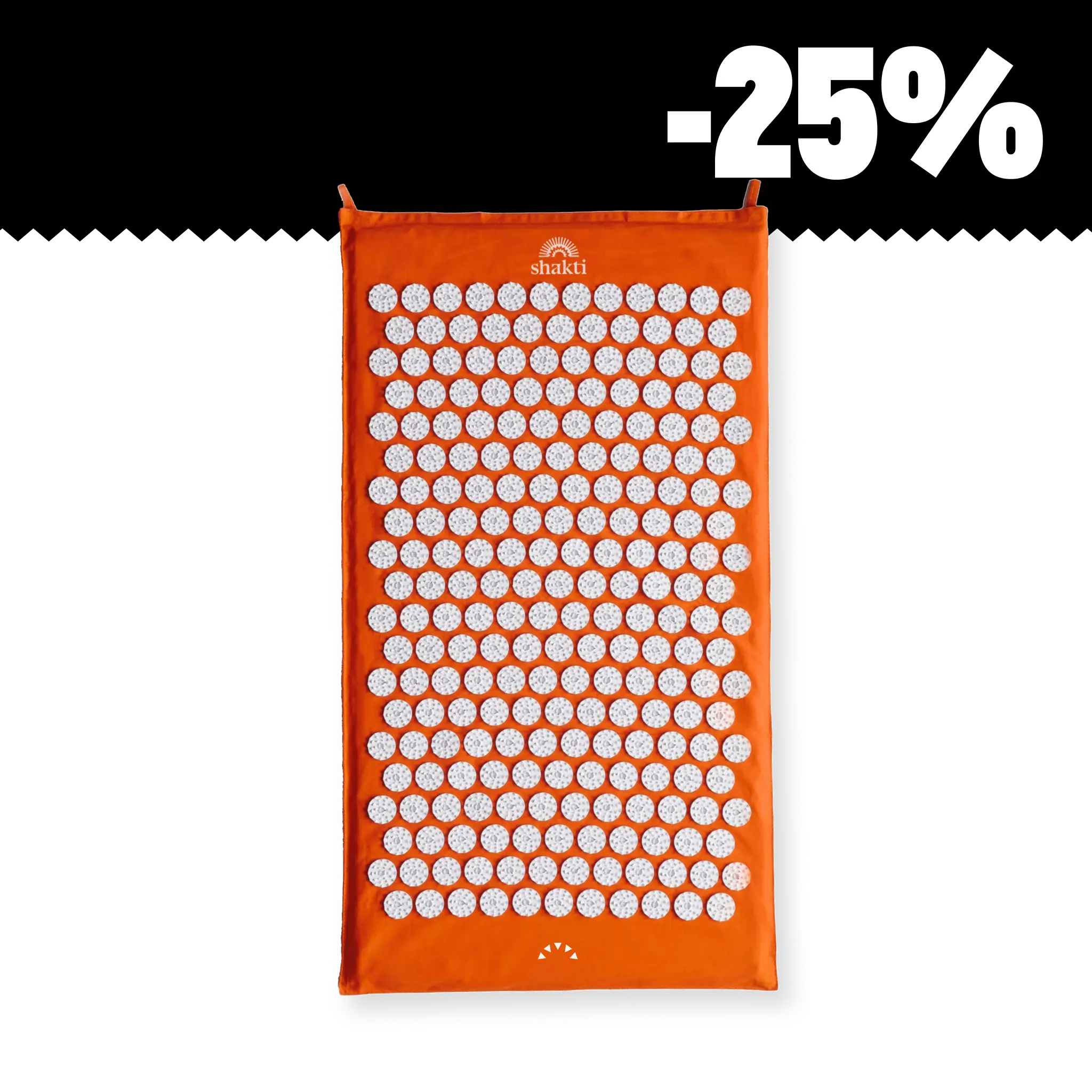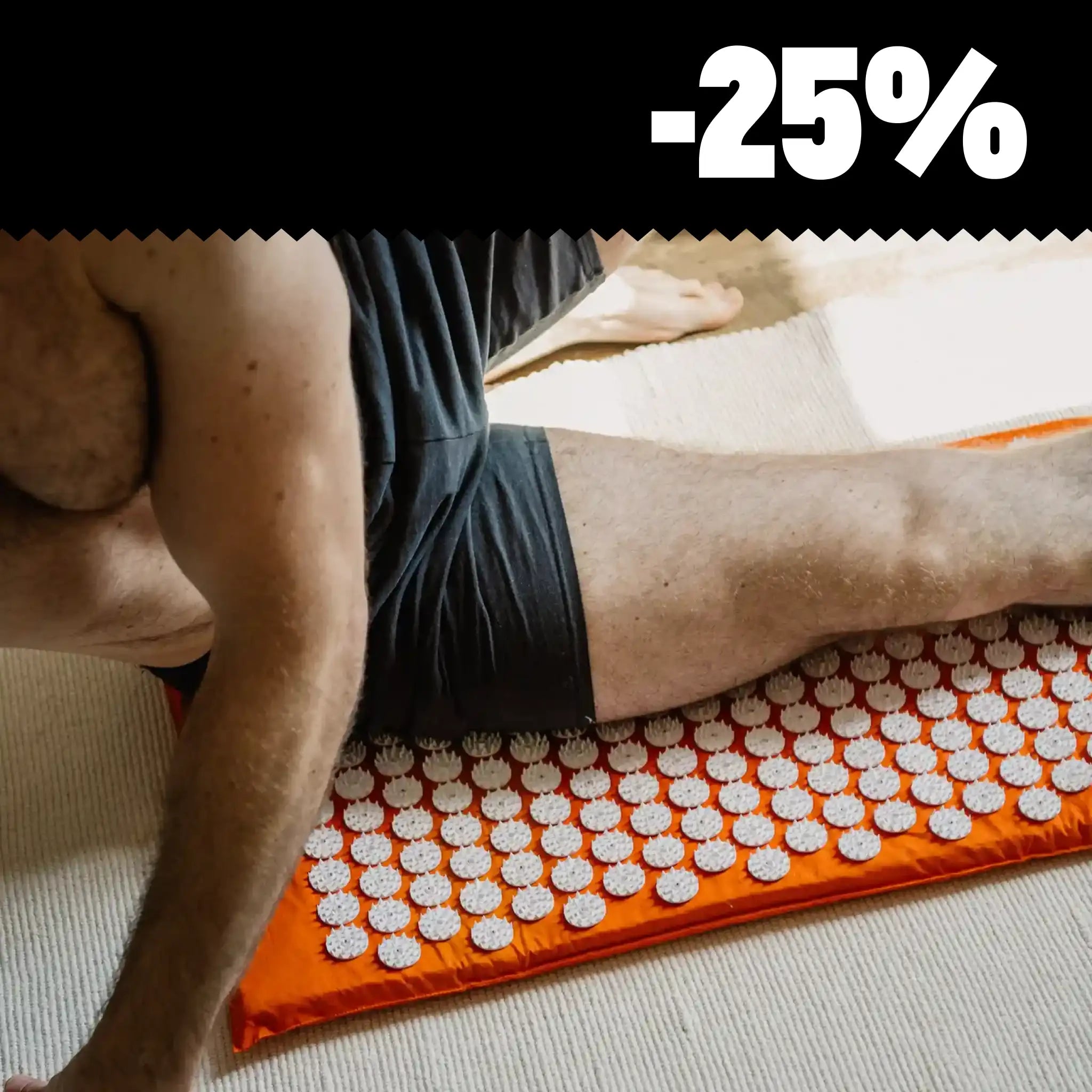Standing too close to the speakers at a concert, too much stress at work or taking (high doses of) medication such as aspirin and there it is: suddenly, strange noises ring through our ears - we experience tinnitus. In most cases, it only lasts for a short time. But what exactly is this noise in the ear, how exactly is it triggered and what can we do if the ringing doesn't stop? This and how acupressure can help you in this article.
Content
2 What is subjective tinnitus?
3. what are the causes of tinnitus?
4. how can tinnitus be treated or alleviated?
What actually is tinnitus?
Buzzing, hissing, humming, throbbing, ringing. Whether in one ear, both ears or coming from outside - the sounds can feel very different. After a few seconds or minutes, the spook is usually over again.
This phenomenon - short-term tinnitus - is completely normal and is considered harmless. However, it becomes critical when people can no longer get rid of their ringing in the ears. In this case, you should definitely seek medical help.
As already mentioned, patients experience the ringing in their ears very individually. But it's not just the type of noise that differs. Their intensity and intensity also differ.
If the severity is rather low, you can often live without restrictions in everyday life. The tinnitus becomes background music and is usually barely noticed.
What are the trigger points for tinnitus?
Does acupuncture help with tinnitus
How does tinnitus develop?
When do we speak of a chronic disease or a tormenting tinnitus?
On the other hand, according to the non-profit self-help organization "Deutsche Tinnitus-Liga e.V.", around 1.5 million people experience their ringing in the ears as so loud or intense that it severely restricts their quality of life.
These are common consequences:
- Sufferers have problems falling asleep,
- can concentrate poorly
- or more difficult to deal with psychological stress.
In some cases, these psychological stresses cause patients to develop so-called "comorbidities" or, more simply, concomitant symptoms.
In other words, a further clinical picture that occurs in addition to the actual underlying disease.
Anxiety disorders, depression and sleep disorders in particular are increasingly found in patients with tinnitus. Depression and other mental disorders represent a risk factor for the development of tinnitus and can exacerbate it (Zenner et al. 2005 [252], Hébert et al. 2012 [69]).
If the subjectively perceived hearing impairment lasts longer than three months, it is considered a chronic condition.
If you would like to find out more about the topic, you can read the guideline "Chronic tinnitus" from the German Society for Ear, Nose and Throat Medicine, Head and Neck Surgery, which contains extensive information about the condition.
If you find yourself in a situation with similar symptoms or complaints that are causing you emotional distress, we advise you to seek professional help. There are many different treatment methods and it is important to find the one that suits you. The sooner you seek treatment, the better your chances of recovery. So talk to (ENT) specialists at an early stage. But more on that later.
We can distinguish between four degrees of severity
The so-called classification according to Biesinger et al. 1998 takes into account the impact of tinnitus in the professional and private sphere. He sees four different gradations in patients:
- Grade 1: The tinnitus is well compensated, no suffering.
- Grade 2: The tinnitus occurs mainly in silence and is disruptive during stress and strain
- Grade 3: The tinnitus leads to permanent impairment in private and professional life. There are disturbances in the emotional, cognitive and physical areas
- Grade 4: The tinnitus leads to complete decompensation in the private sphere, inability to work

What is subjective tinnitus?
In medicine, we speak of the disease when the sound you perceive does not come from the environment, but from within. In other words, your brain creates the sound or tricks you into believing that you are hearing a certain sound, even though it doesn't exist.
This is related to a disorder in the auditory system. You can compare this symptom with a disorder in the visual system: Here, for example, those affected experience subjectively perceived flashes of light or they are very sensitive to light. Have you ever experienced something like this?
Incidentally, hearing loss or noise hypersensitivity are also symptoms of a hearing system disorder.
What is objective tinnitus?
In very rare cases, even others can actually hear your ringing in the ears. In this case, the trigger is no longer in the hearing system. Instead, the sounds may be caused by the flow of blood vessels or muscle movements. Please write to us in the comments or in our Shakti Mat Facebook group if you have ever had or have objective tinnitus. We look forward to hearing about your experience!
Who can get ringing in the ears?
It is difficult to say that one particular population group is more likely to suffer from this hearing disorder than another. Theoretically, it can affect us all, especially at any age. The older we get, the more frequent the new cases are.
However, we are particularly at risk if we have certain pre-existing conditions (more on this in the next section), have been exposed to a lot of stress for too long or have suffered a trauma. In Germany, around three million people feel the "inner noise".
You can find out how one sufferer feels, what triggered her illness and how she alleviated her ringing in the ears through self-healing in this SWR report:
A tinnitus patient talks about her experiences with ringing in the ears.
What are the causes of tinnitus?
"As a rule, the cause is not a disease of the ear, but a psychoacoustic phenomenon, in short: a faulty processing of acoustic signals in the brain," writes the Tinnitus & Hearing Foundation of the Charité in Berlin.
There can be many different causes of the noise. Research has not yet come to an end and new ones are constantly being added.
According to the foundation, some causes can lie in a wide variety of areas:
Physical causes
- Meniere's disease (a disorder of the inner ear),
- a narrowing of the large vessels of the neck,
- a wear and tear of the cervical spine,
- Temporomandibular joint disorders
- Internal diseases such as diabetes, lipometabolic disorders and high blood pressure.
- Severe noise pollution, causing damage to the inner ear
- Hearing loss and associated hearing loss
Psychological causes
- Psychological stress (at school or at work) and/or emotional experiences - in the Shakti Mat blog you can find out more about the symptoms, causes and healing of stress and how you can support psychosomatic conditions with acupressure.
- Depression
- Anxiety disorders
Clear recommendation
"Back pain and tinnitus have disappeared. Simply great! 👌"
- Benjamin R.
How can tinnitus be treated or alleviated?
You have the best chance of recovery when the cause is identified. That's why it's not only worth talking to ENT specialists. Neurologists, internists and/or orthopedists may also be able to help you determine an accurate diagnosis. Depending on the cause of your ringing in the ears, one or more of these treatments may help. Or, in the case of a chronic condition, at least provide some relief. The Tinnitus Center at the University of Regensburg has compiled a list of effective treatment options:
Transcranial magnetic stimulation
This is a new method that uses magnetic pulses to stimulate specific areas of the brain. And since certain areas of the brain are irritated or overactive in tinnitus patients, these can be influenced by the method.
Drug therapy
As yet, there are no drugs that help against tinnitus. Here, research is still in the development phase. Some forms of ringing in the ears and their accompanying symptoms, as we have explained above, can help patients.
Audiological therapies
Hearing aids
For those who have a hearing loss in addition to a ringing in the ears, a hearing aid can be helpful. For one thing, it is less strenuous to understand the other person. For another, a hearing aid amplifies ambient noise in general. Many sufferers report that it is precisely such background noises that help them forget the ringing in their own ears.
Sound therapy
And this is exactly where sound therapy comes in: True to the motto "Avoid the silence", very specific sounds or music can mask the tinnitus or at least make it quieter. This distracts patients from the noises in their own head. The distracting sounds are broadband sounds. But also classical music or relaxation music as well as the sound of the sea and co. There are countless soundtracks on YouTube or Spotify that are designed to relax us - with or without noise in our ears ;-).
How can you easily integrate more relaxation into your everyday life, especially in the long term? From micro-breaks to short trips, yoga and meditation: in the ShaktiMat blog, we have put together four ideas for more peace and quiet.
Example of music to relieve tinnitus:
https://youtu.be/stexnrXjrM0?si=I32BR7AgaGsb6FTd
Psychological therapies
Tinnitus retraining / refocusing of concentration
Particularly for the chronically ill, attempts are made to change the perception of their sounds in the ear. Because it is precisely sounds that we perceive as negative that we hear particularly loudly. But if our brain notices that a sound is heard neutrally by us - in other words, we don't really care - the brain blocks out this sound.
In everyday life, this happens, for example, with the sounds of a refrigerator when you spend a lot of time in the kitchen. This form of therapy works exactly like that.
Relaxation therapies
The Shakti acupressure pillow provides relaxation in the neck area.
Acupressure trigger points for tinnitus
The constant use of acupressure can be another element to "restore calm". In our Facebook group, some of our community have already reported how they were able to relax and fall asleep better with self-therapy using the acupressure mat - despite the ringing.
There are also various pressure points that you can target.
Here are a few ideas to promote blood circulation in your ears and relieve tension in the jaw and ear area:
1. you will find the first point in front of your pinna at the end of the jaw joint. When you open your jaw, you will feel a kind of hole or cavity.
Then massage another point above your ear on both sides.
3. if you close your ears with your hands from the front, you will find the next trigger point with your third finger. Here it may be a little painful or you may not feel it at all.
The last point is just below the earlobe. You should massage this point again with your second and / or third finger.
Press and circle or massage the points for one to two minutes up to five times a day.
Also look for points that are (particularly) tense and massage these areas regularly. You can look at your whole body when doing this. Tension does not necessarily have to be directly in the affected ear or jaw/neck area to alleviate your symptoms.
For example, walk from your shoulder to your forearm. If you discover painful areas, stay here and circle more. Of course, you shouldn't hurt yourself. But usually the points that we feel intensely and instinctively and are a little painful are the ones that we should pay particular attention to so that things get better. You can do it! ☺
Or regularly lie on your back or one side of your face on the acupressure mat: this can provide relief and relax you, especially against severe tension. You can find exercises on our YouTube channel and testimonials from our community in our Facebook group. Here you can talk to others about specific complaints and how acupressure has helped them.
Other exercise methods to relieve stress-induced ringing in the ears
It can never hurt to do something against too much stress. Not even if tinnitus is triggered by stress. Here, relaxation techniques such as autogenic training, meditation, progressive muscle relaxation or yoga could help you cope with stress and thus achieve success in reducing ear sounds. (Source: Alternative Healing, Chrisoph Jänicke, Jörg Grünwald, p. 388)

How can I protect myself?
There are two things we can do to protect ourselves and our hearing from nerve-killing ringing in the ears:
Firstly, prevent ongoing stress and psychological strain or take time out early enough before it's too late! According to the German Medical Association for Acupuncture: "Stress and psychological strain are the triggers for half of all sufferers. That's why many doctors don't see tinnitus as a disease in its own right, but as a signal of physical and/or mental overload."
Secondly, protect your ears from loud noise, for example at concerts or when listening to music through headphones. You can easily do this with earplugs or some absorbent cotton in your ears.
Rest and relaxation help to combat stress. Lying on the Shakti Mat and the Shakti Mat acupressure cushion promotes this.
You've probably already noticed that the topic of tinnitus is very diverse - both in terms of its causes and its treatment options. But don't be discouraged! Because you are not alone if you suffer from this condition. Talk to experts and try out other methods to support your self-healing powers. We hope we've been able to give you some inspiration.
Let us know if this article has helped you and leave us a comment if you have any questions. Otherwise, all that remains to say is: stay healthy!
About the author
Jasmin is a passionate content creator - with a business mind. As a German-American, she grew up in Franconia, experienced bed bugs in the Big Apple, survived paragliding flights in Argentina and lost her heart to creative Berlin. She is fascinated by cultures and their peculiarities and is interested in a sustainable and healthy lifestyle as well as the topics of futurology, digitalization and the phenomenon of how trends emerge. She has also been bitten by the yoga bug for a few years now. That's why she always takes her yoga mat with her - for example on countless road trips through Europe with her boyfriend, her little cocker spaniel and hopefully soon with her own camper van.


